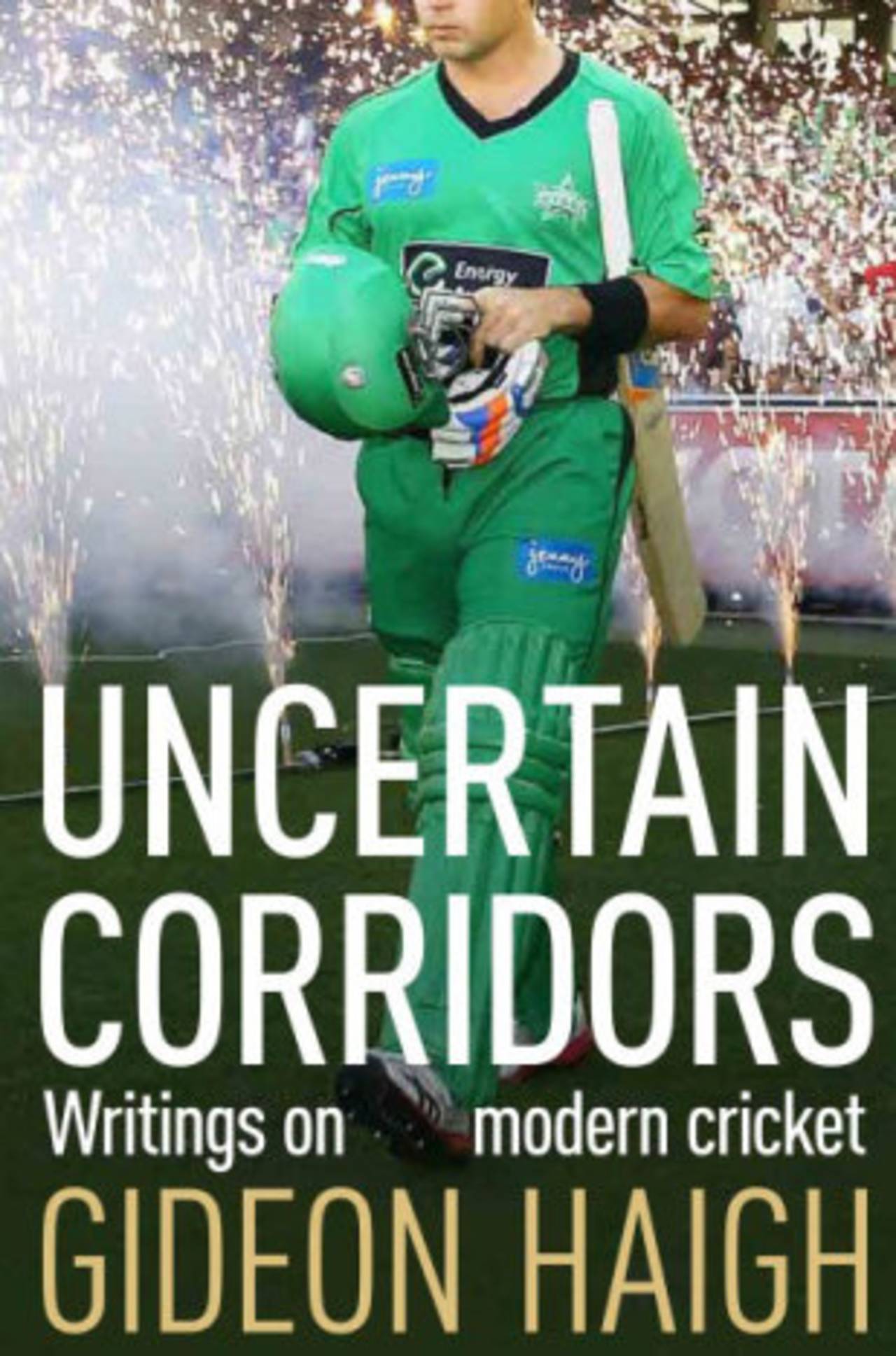An archaelogical probe into the state of the game
Cricket's premier historian comes out with another collection of essays that sound uncannily prescient about the way the game is headed
Alan Gardner
19-Apr-2014

Simon and Schuster
Who watches the watchmen? When cricket's modern-day guardians are so often asleep or, worse, attending to the lining of their own pockets, it is vital that journalists such as Gideon Haigh do.
Uncertain Corridors is the latest collection of essays by Haigh, with rigorous analysis of the game's power structures at its dark heart, although there is still room for discussion of the channel outside off in portraits of current and recently departed greats, whose exploits most of us lazily prefer to spend our time watching.
Haigh is one of the world's foremost cricket historians, although Uncertain Corridors verges on archaeology in parts. Few anticipated the aggressive kangaroo bounce achieved by Darren Lehmann's Australia during the most recent Ashes contest and Haigh's inquisitorial probing of the state of the game in his homeland during the preceding two years is no less valid, or interesting, for the glut that appears to have succeeded the famine. (Whether it really is a glut or not will probably be worth another book.)
An era ended with the retirements of Ricky Ponting and Mike Hussey and Haigh sketches both against the setting sun with a typically precise eye for detail and phrase-making. Writing about Ponting in late 2011, before a successful series against India prolonged his stay, Haigh draws a comparison between the struggles of this former Australia captain and the prosperity of another, Steve Waugh, whose "late-career technique was an Alamo of ornery defiance". Hussey, meanwhile, was "the bullion in the vaults of the Australian team, the additional layer of capital to draw on in an emergency".
While Hussey got out twice playing the pull on debut, he only did so once more in his 79-Test career; his final dismissal saw him, for the first time, run out attempting a single. Of the numerous ways in which Hussey's value to the Australia team could be measured, the fact he built 97 partnerships of 50 or more with 23 different team-mates is particularly resonant. These observations are typical of Haigh's insight. Reference to Ponting's practical habit of starting an innings with a familiar "Nice loud calls, mate" to his partner is another.
This first third of the book, which also features some homework for On Warne and a lengthy piece on Kerry Packer's legacy, gives way to less easily romanticised subject matter: broadly, Australian cricket and global administration. These two sections make up the bulk of the book, and although some of Haigh's subject matter has been overtaken by events, the analysis is thorough.
"Unhappy Anniversary", a piece written for the Australian in January 2012, eerily foreshadows the episode that unfolded two years later, when the BCCI-ECB-CA position paper on restructuring the ICC, in particular its financial model, was leaked. "That quite a lot of international cricket doesn't make money is now held against it," Haigh wrote. "The strong resent having to subsidise the weak. The strong resent having to do much at all except become stronger." The strong have now given themselves a mandate to do so.
An in-depth history of the ICC written for Wisden around the same time, "Fear and Loathing in Dubai", is also reproduced in full. The final line, suggesting that "the Woolf review may be a straw that breaks this camel's back" is also remarkably prescient, given the governance path the ICC is now set to take.
The game and its affairs have rarely been in a greater state of flux, from the scandals of the IPL (cricket's "vertiginous candy mountain") to the "cockamamie cluster-f***" that is Australia's domestic schedule. The rapid passage of time in some cases serves to demonstrate the acuity of Haigh's vision, from the machinations at the ICC to his suggestion that Michael Clarke would do well to remove himself from the Australian Test team's selection process, which has also come to pass. Other pieces are less buffeted by the winds of change, and an extensive Nightwatchman article on the game in Papua New Guinea is a timeless treat.
While plenty of Uncertain Corridors can now serve as archive material, Haigh is no dry historian, sequestered in his library, depositing ink on to parchment. He writes for numerous publications and perhaps the only reason to pass on the book is that his current thoughts are even more easily accessible. In these uncertain times, Haigh remains a sure thing.
Uncertain Corridors: Writings on Modern Cricket
Gideon Haigh
Simon and Schuster
336 pages

Gideon Haigh
Simon and Schuster
336 pages

Alan Gardner is an assistant editor at ESPNcricinfo. @alanroderick